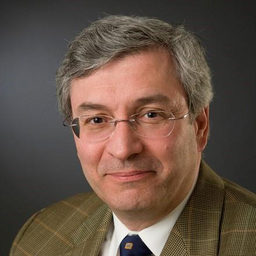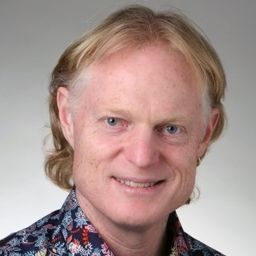Plenary Session 4
My Session Status
Michael A. Lacasse, Ph.D. P.Eng. Nature-based Solutions for Buildings and Communities Canada is warming at double the rate of the global average caused in part by a fast-growing population and extensive land transformations, where urban surfaces and buildings significantly contributing to the urban heat island phenomenon. The federal government released a strengthened climate plan in 2020, which emphasizes using Nature Based Solutions to combat the effects of the urban heat island. Nature Based Solutions can take the form of urban green infrastructure, which, amongst other elements, includes trees, vegetation, green roofs, and vegetated facades. The strategic implementation and maintenance of urban green infrastructure, as forms part of Nature Based Solutions, can reduce urban CO2 emissions and support necessary climate change adaptations. In this brief talk, a snapshot is offered of the current understanding of Nature-based solutions and how these may affect urban heat island phenomena and building energy use. The primary knowledge gaps are examined and as well, future steps needed to reduce the effects of urban heat island in urban agglomerations across Canada are considered. Bio: Dr. Michael A. Lacasse is a senior research officer in the Construction Research Center of the National Research Council Canada (NRC) having over 30 years’ experience as a building engineer. For the last decade he has acted as team leader to the Facades Systems and Products group at NRCConstruction. As such, he has overseen work over a broad spectrum of building envelope research that includes the weathertightness of building enclosures, evaluating the thermal and moisture response of highly insulated wood-frame wall assemblies, development of methods to assess the longterm performance of building components and envelope assemblies, and more recently, on the expected resilience of building enclosures to the effects of climate change. He is a member of the board of the International Council for Research and Innovation in Building and Construction (CIB) and acts coordinator for the CIB TG97 on “Nature based solutions for resilient buildings and communities” and the CIB technical committee W080 on "Prediction of Service Life of Building Materials and Components”. He also chairs the ISO TC59 SC14 on “Design Life of Buildings”, for which he is also chair of the Canadian Advisory Committee. Additionally, he chairs the ISO TC59 AG 2 “Climate change adaptation”. More recently, he supported the work of the National Building Code of Canada’s standing committee on “Environmental separation” and also worked on the Canadian Standards Association committee to revise the standard CSA S478 “Guideline on Durability in Buildings”. He also participates in ASTM activities of committee E06 on “Performance of Buildings”. Dr. Lacasse prior to working at the NRC worked both in private industry and government construction agencies. |
Ian Beausoleil-Morrison, PhD, P.Eng. Meeting Cold-climate Housing Energy Needs with Solar: Opportunities and Challenges Tremendous amounts of energy---mostly in the forms of electricity and natural gas---are consumed to heat, cool, and ventilate the places in which we live and to provide the hot water, lighting, and appliance services we demand. As the amount of solar energy incident upon the envelope of a typical detached house greatly exceeds its annual energy needs, there is potential to radically reduce the adverse environmental and energy security issues caused by housing. But there are myriad challenges in realizing this ambition, arguably the greatest being a significant temporal mismatch between demand and supply. This talk will present results from a research program involving long-term experiments and simulations of seasonal thermal storage options aimed at providing the majority of cold-climate housing energy needs with solar and will outline some of the key opportunities and challenges. Bio: Ian Beausoleil-Morrison is Professor in the Faculty of Engineering and Design at Carleton University. President of the International Building Performance Simulation Association from 2010 to 2015 and the 2021 recipient of its Distinguished Achievement Award, over the past three decades he has researched, developed, and validated models and simulation tools for buildings and energy systems. He recently published the textbook Fundamentals of Building Performance Simulation and has served as the Co-Editor of the Journal of Building Performance Simulation since its inception in 2008. |

